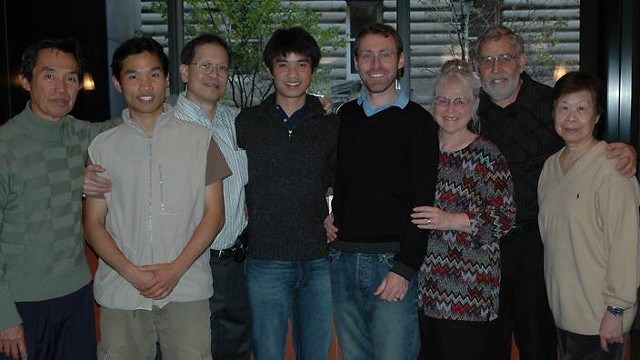Legislating gay marriage will expose rural Australia to the love and commitment of ordinary same-sex couples. It can only help reduce homophobia in the bush, writes Ivan Hinton.
Achieving marriage equality will improve the lives of countless LGBTI Australians growing up in rural and regional Australia. It will give hope to many isolated young Australians and improve awareness in their broader community of the depth of our relationships.
Growing up in Tumut, a small country town in NSW, I knew from an early age I was different to my school mates. Well before adolescence, well before I became aware of sexual attraction, I knew. Increasingly, silently and alone, I knew that I was not entitled one of the most beautiful and significant life experiences which was enjoyed by my closest family members and friends.
There was a roadmap laid out in front of me by the successful marriages of my parents, my aunts, uncles and my grandparents. I was surrounded by a concept that I admired and wanted to be a part of but, because of who I had the capacity to love, I knew I was denied it.
One of the first forms of discrimination I felt as a young Australian was from the State. Through my adolescence it made my future unclear and it made me question my place in society.
Like many other young regional LGBTI Australians, I found myself afraid of who I was. I had trouble accepting myself, and in the remoteness of our country community, I was terrified that I would never find the unconditional love and enduring partnership that I witnessed amongst my friends and family members quite clearly through their marriages.
Honestly, I was lucky to survive my teenage years as a result of the hopelessness and disconnect I felt.
If I grew up in a society that didn’t discriminate; if I was not specifically and intentionally excluded from the social institution of marriage my childhood could have been vastly easier, particularly while I came to terms with who I was.
I came out to my parents when I was twenty nine years old. While I knew that their love for me was unconditional their concerns would be, to some degree, allayed by seeing that I was happy and within a committed relationship. There is an undeniable communal belief and research that happiness can be found in forging a lifelong partnership. I share that belief.
As a result my now husband, Chris, was introduced to my broader family. While they may not have understood my sexuality they loved me and respected our relationship. It was, on some level, my committed relationship with Chris that I feel many of my family could relate to most easily. It was the connection, beyond sexuality, that was recognisable and respected.
So, when Chris and I decided to flout local law and get married in Canberra five years and one day ago, 170 of our family and community was there to celebrate and witness something clearly recognisable. Our commitment, our celebration and our new contract between our two families built bonds of respect that our shared families all carried home with them.
It is important that the commitment made between loving same-sex couples becomes more visible to isolated LGBTI youth in regional Australia and marriage equality will greatly facilitate this. This will help those coming to terms with their sexuality, finding their life path and seeking greater self-respect.
More and more Australians from country towns will be invited to the weddings of gay couples. Like our 170 guests they will witness the respect of the values that we share for an institution many aspire to be a part of.
In each case they will return to their communities with a greater understanding of our contribution to society and an awareness that, in many cases, we share a greater number of similarities than differences.
Challenging stereotypes by experiencing the love and commitment of ordinary same-sex couples can only help reduce homophobia in the bush and is one of my strongest motivations for achieving marriage equality.
Ivan Hinton is Acting Director of Australian Marriage Equality, Vice President of PFLAG Capital Region and a representative on the LGBTIQ advisory council to the ACT Government.
This is a response to “Australia is not ready for gay marriage”, by Curtis Campion.

